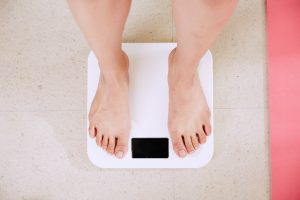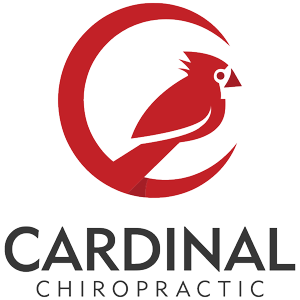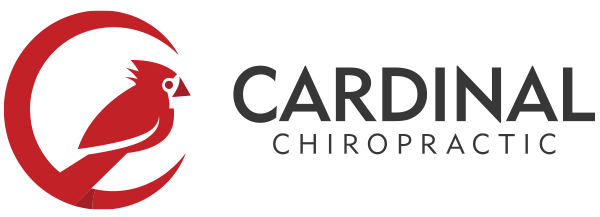Our bodies are designed to gain weight. And the North American diet doesn’t make things easier.
Weight loss is not natural to the human body. If you look at humans ancestrally, we did not know when our next meal was coming, so we eat as much as we could when we could. We stored fat because we never knew when the next meal was coming. In this day and age food is everywhere. It is available 24 hours a day, seven days a week. Food now is highly processed and loaded with tons of sugar, calories, and preservatives. Genetically we are not designed to have this type of food or this availability of food. Because of this, we have developed an obesity epidemic.

Photo by i yunmai on Unsplash
Weight Gain
The main culprit to weight gain is sugar. Sugar is not only highly addictive, as it stimulates the reward and pleasure centers in your brain, but it is cheap, easy to make, and taste good. Sugar is also not very satiating, which makes it very easy to over consume.
According to the National Institute of Health, the average person eats about 150 to 200 pounds of sugar per year. This number seems impossible. But sugar is hidden in everything nowadays. And now it even has different names, so half the time we are eating it we don’t even know.
What happens when you over consume on sugar.? What happens when you eat more sugar than your body can burn off?
Insulin’s primary job is a blood glucose reducer. That means it is going to take the excess sugar out of your bloodstream. And where does it put it? It puts it right into your fat cells. In fact your fat cells never go away. They just get bigger as you gain weight, and smaller as you lose weight. But they are always there, ready to do their job.
Ketosis
Your body has three fuel sources of energy. You can get energy from sugar, fat, or protein. When you are trying to lose weight, you want to get your energy from your extra fat stores. However sugar is your body‘s primary fuel source of energy. So that means it will burn that first. It doesn’t matter how much fat you have on your body, if you’re giving your body any sugar available for usage it will burn that first. Only once your sugar stores are exhausted will your body look to your fat as an energy source. Once your body starts burning fat as an energy source this is called ketosis. Ketosis simply means you’re getting your energy from fat rather than from sugar. The average person needs to eat under 50 net carbs per day in order to get into fat metabolism.
Once you are in ketosis your body wants to burn protein at the same rate that it is burning fat. Now what in your body is made of protein? That’s right your muscle. You never want to use your muscle, or lean mass, as an energy source. Your muscle is your metabolism. This is what is going to help you to burn calories. If you’re burning through your muscle mass then you are tanking your metabolism. This will make weight loss even that much more difficult. So how do you spare your lean mass when you are in ketosis? You spare your lean mass by making sure you are eating adequate amounts of protein.
The average person needs at least 1/2 gram of protein per ideal body weight in pounds. That means if you weigh 140 pounds you should be eating at least 70 grams of protein per day to maintain your muscle mass. And this is regardless if you’re dieting or not. And if you’re exercising aggressively you need to even be eating more. Some people need to be eating a one to one ratio due to the amount of activity they endure.
Weight Loss Mistakes
There are many mistakes that people make when they try to lose weight. One mistake that many people make is they decide to eat a “balanced diet”. A balanced diet will help you to not gain weight, but it probably won’t help you to lose weight either. A balanced diet is great for stabilization and maintenance.
Another mistake many people make is they decide to eat less or portion control. Unfortunately, this is not effective for healthy weight loss either. No two calories are created equal. Certain foods will stimulate insulin production, which is the fat storing hormone. If you are eating these types of foods, even at a low caloric intake, this will slow or stop weight loss.
Two of the most common mistakes that I see when people go on a ketogenic program without guidance is they eat too many calories and/or they don’t get their electrolyte balance.
Many people think that being on a ketogenic program means they can eat as much fat as they want. Fat has a lot of calories in it and if you want to be in weight loss you have to reduce your caloric intake. Remember ketosis simply means you’re getting your energy from fat rather than from sugar. If you’re eating a high calorie ketogenic diet, then you will be getting your energy from the fat that you are eating. If you want to lose your excess body fat, you need to get your body to burn that fat instead of dietary fat. So, reducing your calories is important while on a ketogenic program. But it’s also important not to reduce your calories too much or your body will go into starvation mode.
The other mistake people make is not realizing the importance of your electrolyte balance while in ketosis. Your body naturally gets rid of electrolytes while in ketosis. It is important for you to replenish your electrolytes. Low electrolytes can slow down your weight loss, and cause constipation, dizziness, headaches, and even heart palpitations.
Although weight loss is an unnatural part of our bodies, we can do it successfully if we know what we are doing. The benefits of weight loss or many. Studies show that even 5 to 10% of weight loss can show improvements in blood pressure, blood cholesterol, and blood sugar. We can also see increased energy levels, mobility, mood, and self-confidence.

